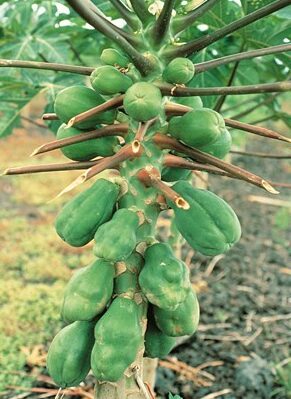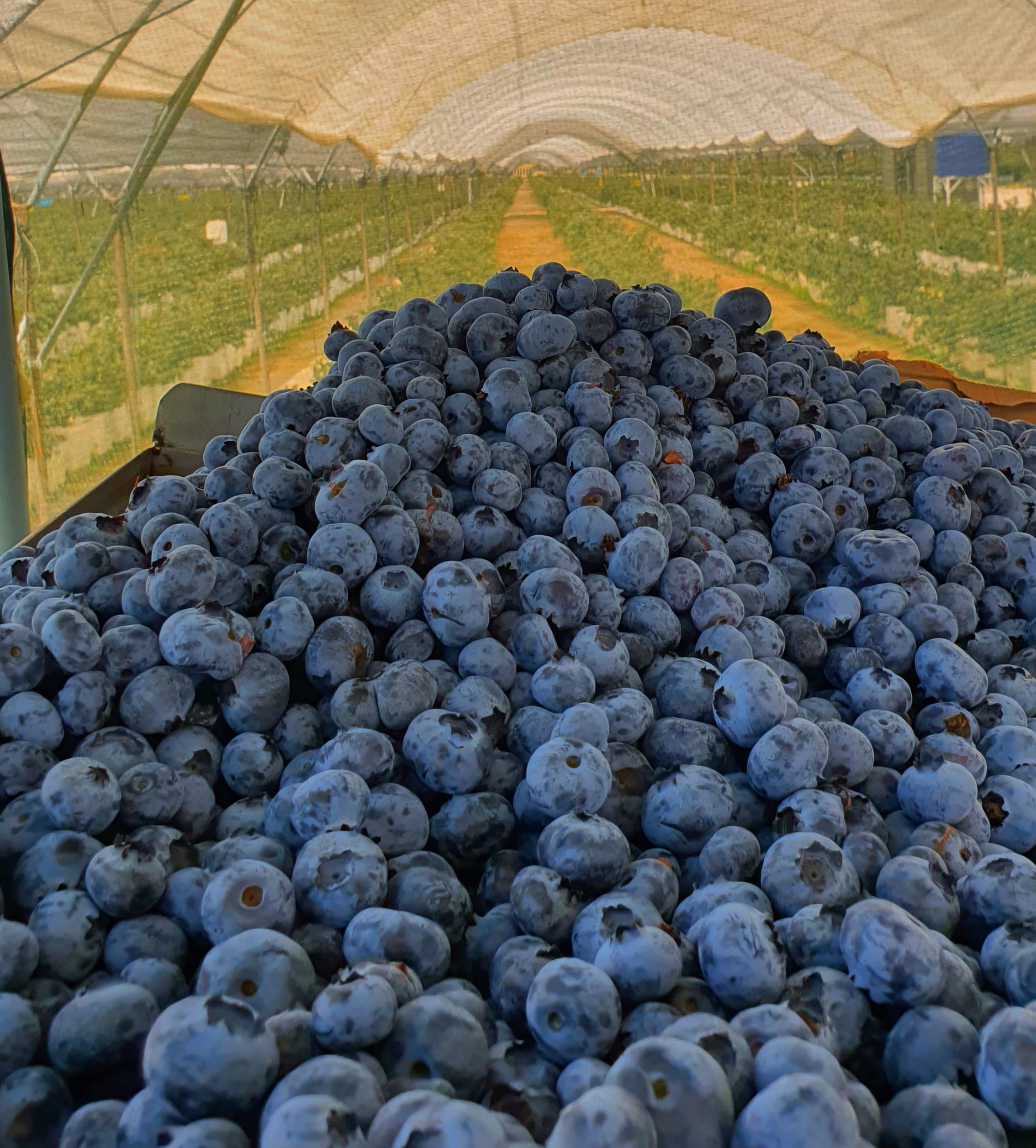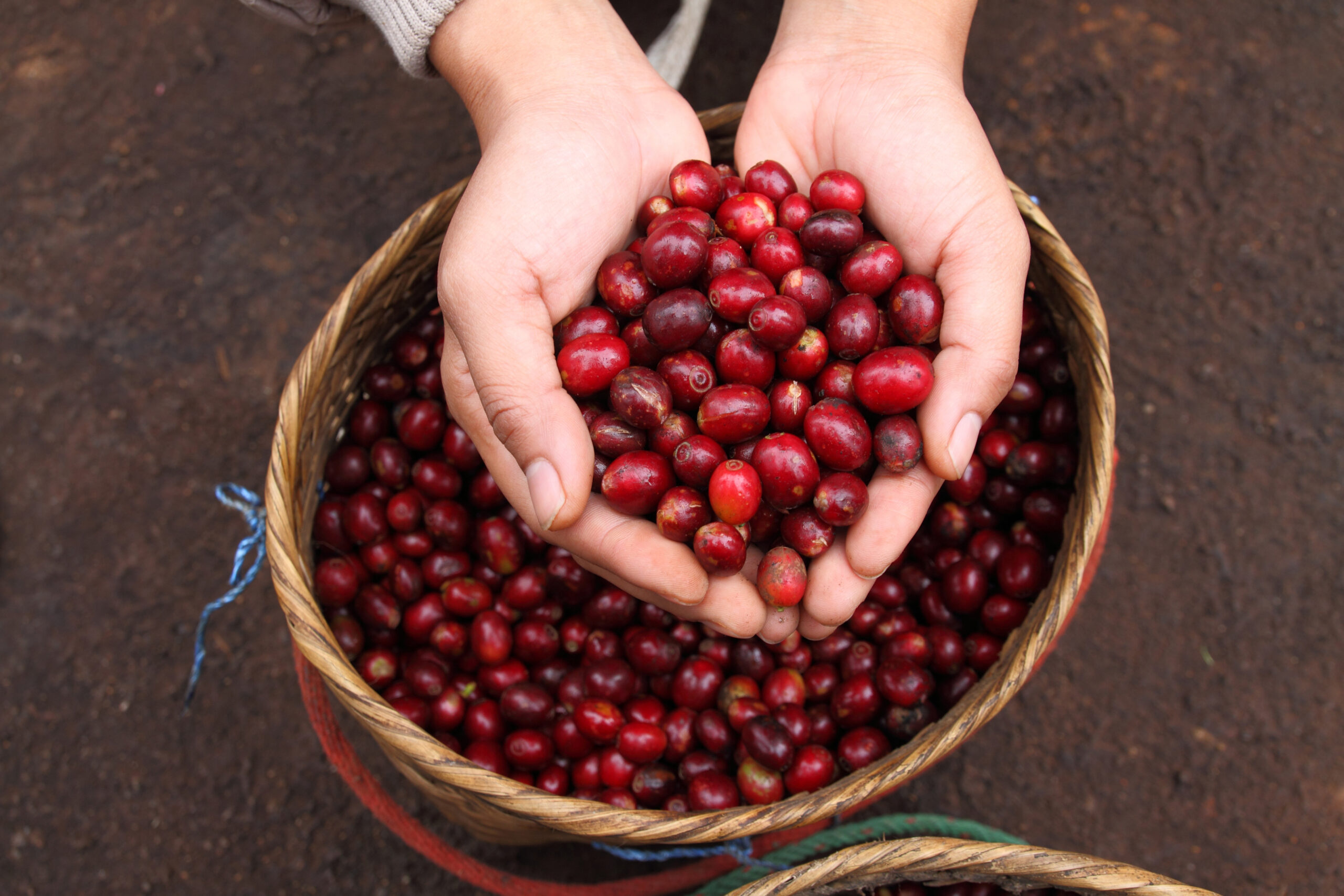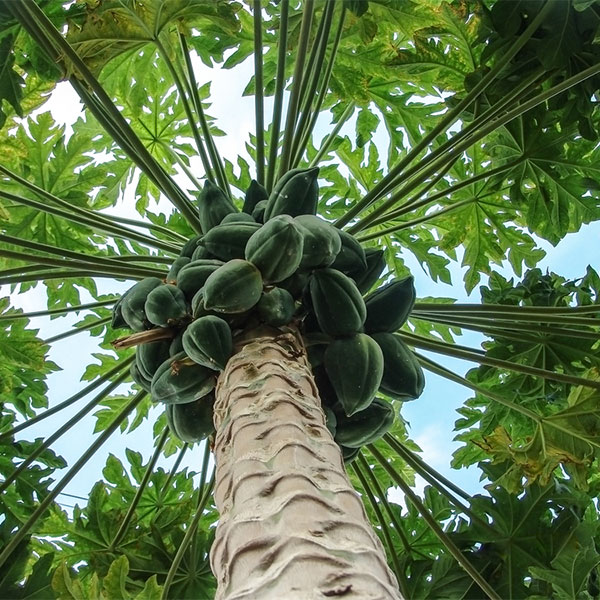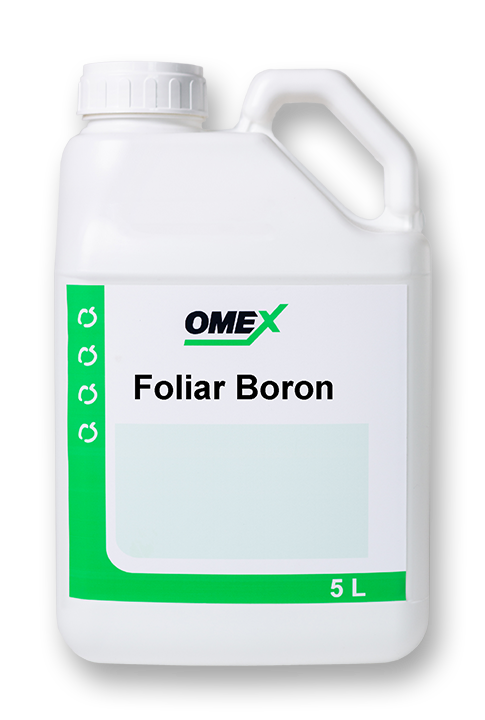Boron nutrient deficiency in plants
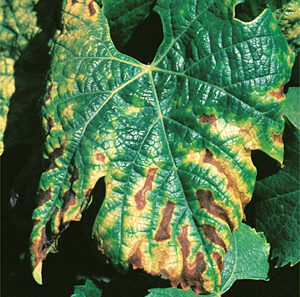
Advanced stage boron deficiency in grape, with interveinal chlorosis and necrosis. Source: APS Digital Image Collections.
Form
taken up as ionic BO3-, Boron plays a central role in a wide range of cellular activities.
Function
Boron is involved in the formation, germination and development of pollen, affecting flowering and seed or fruit set. Boron is also involved in plant functions such as maturation, respiration and cell division. Linked to Calcium uptake, Boron plays a major role in the formation of starch in seed, tubers and fruit.
Symptoms
Boron nutrient deficiency affects younger tissue, particularly active growing points of shoot, root, flower and fruit. Plants display a bronzed appearance. Often associated with low Calcium status, plants suffer from slow growth and poor or irregular expansion of tissue at the growing points.
Significance
Boron stress reduces flowering response and pollination, leading to reduced seed, tuber or fruit set. Maturation is delayed and starch accumulation is reduced, leading to slower development and greater risk of internal problems in seed and fruit. Boron nutrient deficiency is often associated with reduced tolerance to drought and heat stress, low Brix and increased disease pressure.
Actions
Check soil status and root development for compaction. Routine foliar fertilizer treatment can be very effective, especially during the early stages of plant development and times of stress.
If you require any further information about deficiency problems or any of our products please get in touch ????

